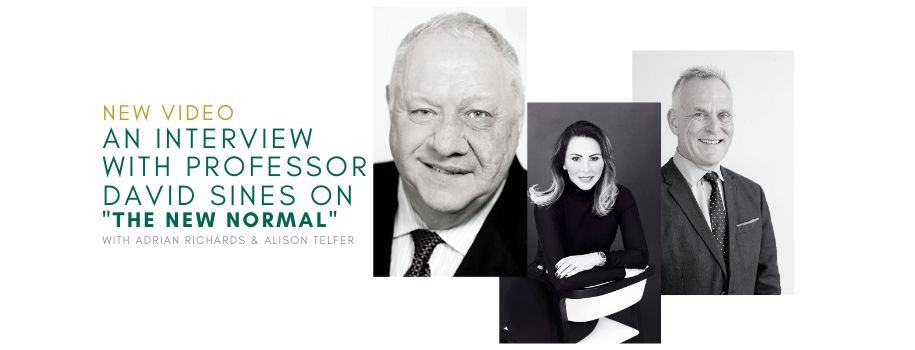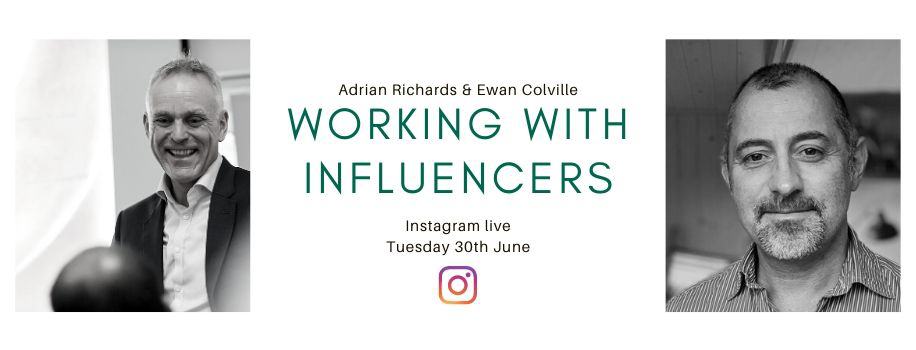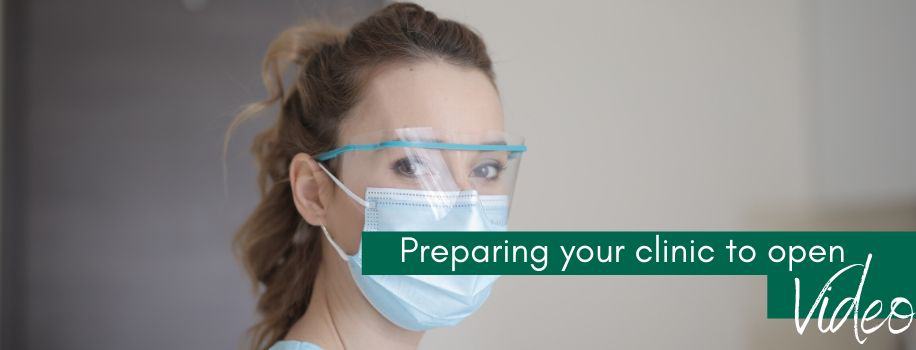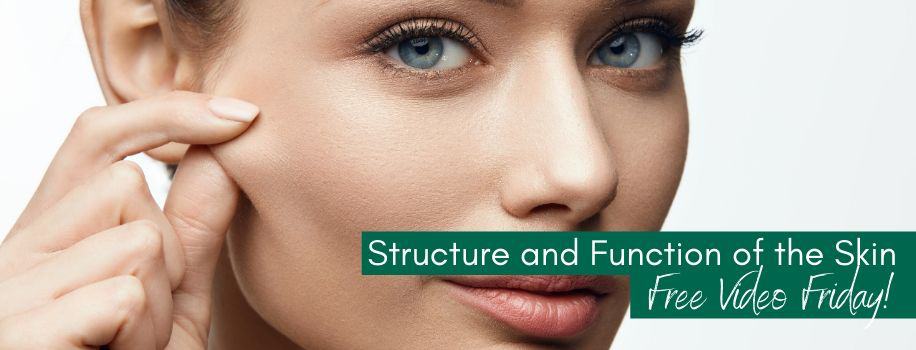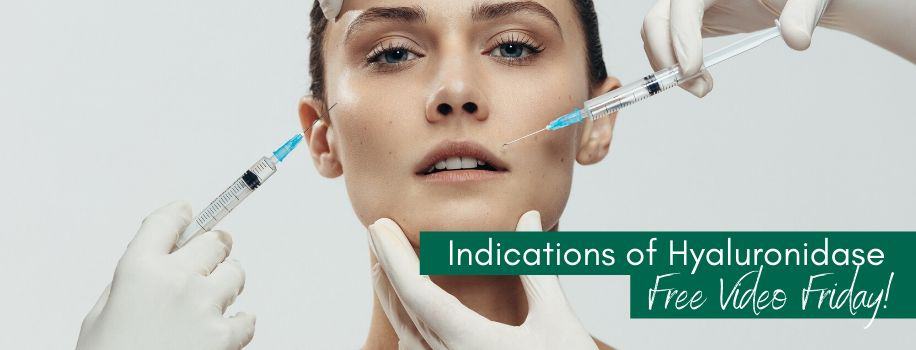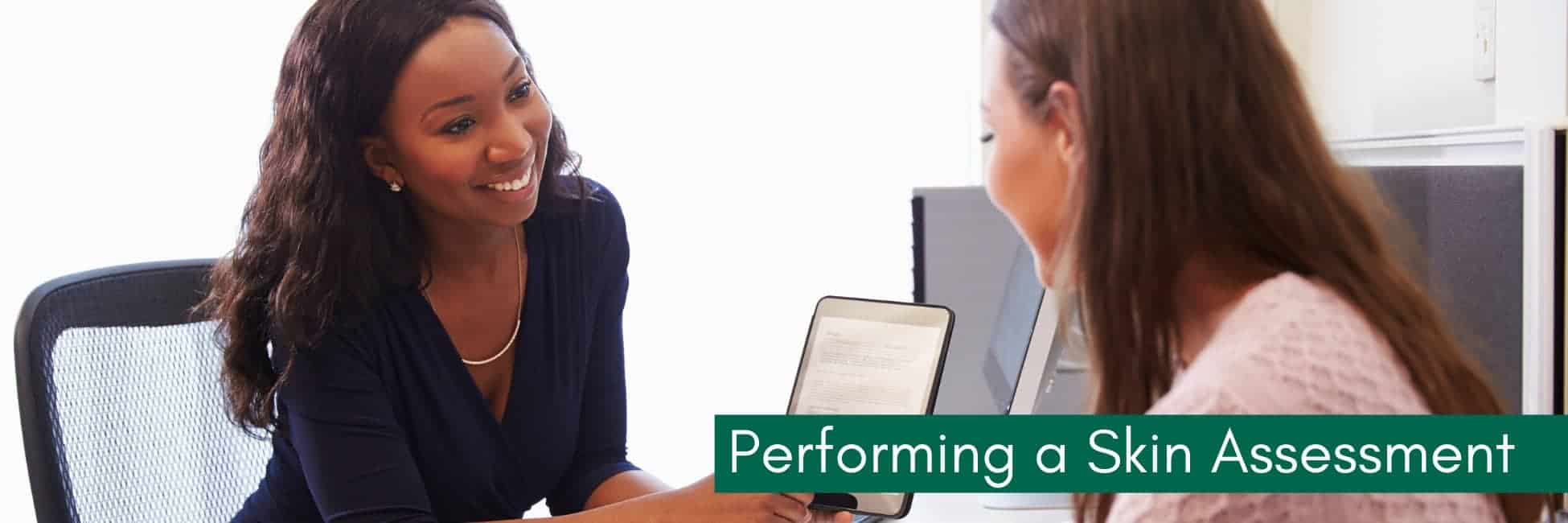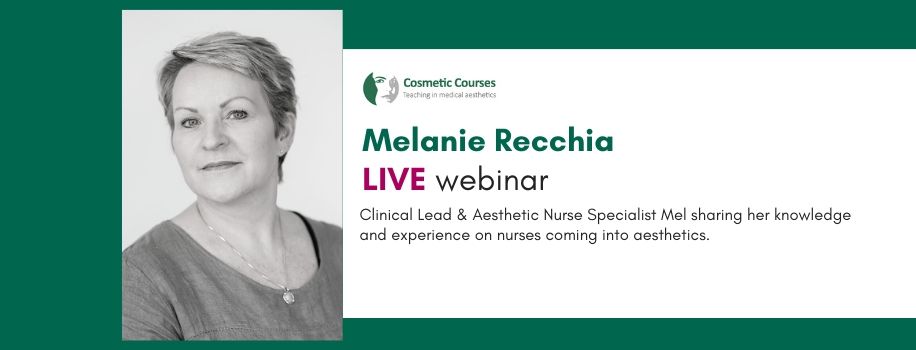Cosmetic Courses Business Newsletter. We are planning to share our business insights into how to start and grow a clinic. We are looking to bring you a wealth of knowledge from our business partners including from Allergan, manufacturer of Botox, to Pabau and Consentz who are our partners for clinic systems.
Clinical Director Mr Adrian Richards and NIP Alison Telfer, Glass House Clinics, chat with Professor David Sines, chair of the JCCP. They delve deeper into what we should be expecting with our clinics reopening and what you can do to make sure you are putting yours and your patients safety at the forefront.
Clinical Director Mr Adrian Richards was joined by Ewan Colville of Sunstone Digital to discuss working with influencers. You can watch the video below and also see some of the mentioned highlights.
- Assessing Influencers:
- Use the free Uplfluence chrome extension to assess credibility of influencers you might want to work with. Quickly check their followers age & gender splits plus country of residency. Download Upluence Chrome Extension here
- You can also assess influencers by simply eyeballing their profiles to check follower numbers, post quality and gauging typical follower engagement with their posts. And follow them with your brand and/or personal IG account to get a flavour of how they interact with followers.
- Buzzstream is another tool you can use to discover and reach out to influencers. It’s possibly more suitable for brands than local clinics, but there is a free trial account you can sign up for and cancel down before you get charged
- Nano-influencers have a following of 1-10K and they might be the best option for clinics with local catchments who want to engage local audiences. You might also find a nano-influencer can be persuaded to promote your clinic/treatments/products with in-kind benefits – like a free treatment
- Beyond the harder-to-measure influencer KPIs like post reach and engagement stats, you can move your more trusted and proven influencers towards payment-by-results models that reward them per click (to your site from their IG posts) or per action on your site like enquiry (lead gen), attending an event or buying a product online with a discount code exclusive to the influencer.
- More influencer marketing insights:
- When your Instagram (or the IG profile of influencers you work with) hits 10K followers, this milestone unlocks extra privileges, the most significant being the swipe-up feature allowing you to embed a web link in an IG story/post.
- Here’s a useful article on local influencer marketing
- Your Business Instagram Account – some housekeeping:
- As Adrian said, you want to verify your business Instagram account. This means IG recognises your profile as an authentic presence. Request IG’s verification badge (it’s a blue tick on your profile pic) by following these steps: https://help.instagram.com/369148866843923. If you’re using an individual Instagram profile to represent your business, then follow these steps instead (be prepared to upload proof of ID like driving licence or passport)
- Use linktr.ee on your Instagram bio to neatly show multiple links to all your relevant platforms or landing pages. Linktr.ee occupies the link in your IG bio and opens up a modal with multiple links to your site, facebook, YouTube Channel, treatment landing pages etc. There’s a free version. Access here
View more live recordings like this here.
Find out more
The Aesthetics Knowledge Hub is a great place for you to find answers to frequently asked questions. We recommend having a look at the Business and Marketing Knowledge Hub.
Facial Fat Pads
In this video we take a deeper look into the anatomy of the face, focusing on the facial fat pads, including superficial compartments and deep compartments.
If you would like to learn more about skin anatomy click here!
Fat pads are thought to be present to facilitate the gliding of muscles in movement, whilst also protecting the sensitive facial muscles from injury. It is vital we understand the facial anatomy of fat pads when delivering dermal filler treatments.
The fat pads can be divided into superficial and deep compartments:
1. Superficial Compartments:
- Found between the skin and the Superficial Muscular Aponeurotic System (SMAS)
- 10 areas to be aware of in this layer:
– Central
– Middle Forehead
– Lateral Temporal-Cheek
– Lateral Orbital
– Superior Orbital
– Inferior Orbital
– Nasolabial
– Middle Cheek
– Jowl
– Pre-Platysma Fat
2. Deep Compartments:
- Found below the SMAS and behind the muscles
- Offer volume and shape to the face
- Areas to be aware of:
– Retro-Orbicularis Oculi Fat
– Lateral Sub-Orbicularis Oculi Fat
– Medial Sub-Orbicularis Oculi Fat
– Buccal Fat
– Deep Medial Cheek Fat
Training with Cosmetic Courses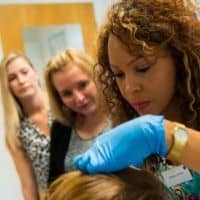
Since 2002, Cosmetic Courses has trained medical professionals in aesthetic treatments. We provide a wide range of courses from beginner to expert in our practical and online courses. Our goal is to create safe and confident injectors by providing high quality training.
If you would like to find out more about our training courses you can talk to the team who will guide you in finding your perfect course:
01844 390110
July is fast approaching and now is the time to make sure you are prepared for when you reopen your clinic.
Clinical Director of Cosmetic Courses Mr Adrian Richards chats with Managing Director Jim Savin and Clinical Lead Dr Fiona Durban of Cosmetic Courses about how to prepare your clinic for opening! Including what PPE you need, how to look after your clinic, staff and patients.
STOCK UP ON YOUR PPE FROM OUR ONLINE SHOP – CLICK HERE!
In this weeks #FreeVideoFriday we recap on the structure and function of skin. Delving deeper into the 3 components which make it up: epidermis, dermis and hypodermis.
When it comes to aesthetic practice, skin can be overlooked. We focus a lot on the anatomy and injection placement but we overlook the skin and its make up. Developing a greater understanding of this can make it easier to understand your patients and what treatments or skincare to recommend to them.
Watch below:
Interested in learning more about the function of the skin?
We are proud to offer both practical and online courses in skin.
Practical:
Online:
If you have any questions about training with us please contact the team on 01844 390110 / [email protected]. You can also find us across social media – @cosmeticcourses
Clinical director of Cosmetic Courses Mr Adrian Richards discusses the 6 indications of Hyaluronidase for your dermal filler patients.
Indications of Hyaluronidase:
1. Vascular Occlusion: when dermal filler is injected into the vessel.
2. Blindness: dermal filler injected around the eye and the carried by vein or artery into the eyeball.
3. The Tyndall Effect: superficial placement of dermal fillers reacting with light.
4. Unacceptable results: immediately wrong results that need to be addressed, wrong placement.
5. Delayed Onset Nodules: typically appears months after treatment in the sight of injection.
6. Allergic Reaction: immediate reaction to the treatment.
Watch below:
Delve deeper into aesthetic complications with our online course:
Aesthetic Complications | Online
Clinical lead of Cosmetic Courses Mel Recchia RN INP talks us through how to perform a beneficial skin assessment prior to treating your patient in their first consultation with you.
Addressing skin concerns, skin needs and the fitzpatrick scale.
Watch below:
Want to delve deeper into skin? We are now offering ONLINE courses covering skin peel, microneedling and skin anatomy.
Skin Anatomy | Online
Micro Needling | Online
Why is it important to perform a skin assessment?
Prior to any treatment regime it is very important you do a skin assessment, this will vary depending on treatment but there are a number of general areas to look out for.
The assessment is done after their medical questionnaire. Taking into context their age, lifestyle and skin type, then breaking it into certain skin conditions such as acne, dry/dyhdrated skin or rosacea – directing us to the appropriate treatment for the patient.
One of the main areas to look at during the assessment is the fitzpatrick scale. This looks at the colour of patients skin and their tanning ability, ranked from 1 (palest) to 8 (darkest), looking at where the patient falls on the scale can help decide the correct treatment.
Not only is this a great way to develop a treatment plan but also works in educating the patient in their skin and what it needs!
Missed our live with Clinical Lead of Cosmetic Courses Melanie Recchia discussing nurses into aesthetics? You can catch it here!
Find out more about nurses coming into aesthetics by clicking here.
Clinical Lead Mel Recchia hosted a free webinar where she discussed nurses into aesthetics, including available routes and advice to get you started.
Answering questions about a nurses journey within aesthetics, suitable for those wanting to dip their toes into the industry and even those who have started but are looking for support and advice.
Mel Recchia qualified as a Registered Nurse at Stoke Mandeville Hospital in 1997. Following qualification, she worked at Stoke Mandeville in the Burns unit, looking after burn injured patients and patients undergoing cosmetic surgery. She then went on to work in Accident and Emergency for 7 years. Before embarking on her nursing career, Mel worked as a Beauty Therapist in various clinics as well as running her own salon. Keen to share her knowledge and experience, she went on to pursue a Certificate in Education which enabled her to train others in beauty therapy.
Mel made the move into aesthetic nursing in 2007, managing 2 successful cosmetic & aesthetic clinics in Northamptonshire & Buckinghamshire and is committed to ongoing education for herself and others. Mel is fully registered with the Nursing and Midwifery Council (NMC) and an active member of the British Association of Cosmetic Nurses (BACN) where she has recently been invited to be a co-opted member of the board. She has also undertaken the V300 independent nurse prescribing course.
Mel’s passion for aesthetics has led her to become a valued member of the Allergan Faculty.
Her wealth of knowledge and experience makes her the perfect person to talk to when thinking about nurses into aesthetics.
Find out more about our Foundation Botox & Dermal Filler course, your first step for nurses into aesthetics.
We were delighted to host a live webinar with Professor David Sines CBE from the JCCP, Mr Adrian Richards & Alison Telfer. If you missed it, you can watch below!
Click the link to see the full document: Preparing for return to practice
The document provided by the JCCP covers:
- Standard precautions
- Transmission
- Hand hygiene
- Respiratory secretions and cough hygiene – ‘Catch it, bin it, kill it’
- Clothing (also below)
- Triage
- Triage
- Bookings and payment
- Temperature screening
- Reception Areas
- Staff
- People that are not involved in direct patient care
- Staff working directly with patients
- Personal Protective Equipment
- Training
- Plume generating procedures: laser and ablative plasma
- Procurement, supply and risk assessment
- Treatment specific Risk assessment and access to appropriate Personal Protective Equipment
- Fit testing
- Sessional use of PPE
- Donning and Doffing
- Disposal of PPE
- Cleaning and Waste Management
- Equipment
- Cleaning in common zones
- Cleaning in treatment rooms
- Room ventilation
- Cleaning solutions
- Audit
- Consent
- Education
- Skin preparation
- Testing
- Time management
- Risk assessment
who are the JCCP?
The JCCP has been established to assist members of the public who are seeking/considering or undergoing non-surgical and hair restoration surgery treatments (Injections, Fillers, Lasers, Peels and Hair Restoration Surgery) with advice on patient safety matters and how to gain access to registers of approved practitioners. Find out more about the JCCP here.
Locations
Business Info
Registered Address – Cosmetic Courses, Summerleys Road, Unit E3 Regent Park, Princes Estate, Princes Risborough, HP27 9LE
Opening Hours
Mo-Fr: 8:30-18:00
Sa: 9:00-17:00
Su: hours dependent on courses

